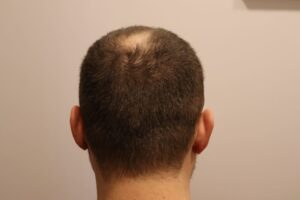Egg donation is an extraordinary act that can help individuals and couples achieve the dream of parenthood. If you’re considering becoming an egg donor, it’s essential to understand egg donation eligibility and the process involved. This guide will walk you through everything you need to know, with practical tips, examples, and frequently asked questions, especially for those interested in egg donation in Ukraine.
What Is Egg Donation?
Egg donation is when a woman donates her eggs (ova) to another person or couple who cannot conceive with their own eggs. These eggs are used in fertility treatments like in-vitro fertilization (IVF) or surrogacy. Donors play a vital role in giving the gift of life to others.
Ukraine has become a popular destination for egg donation, offering high-quality clinics, experienced fertility specialists, and supportive legal frameworks. Being an egg donation producer in this region is not only rewarding but also highly regulated to ensure safety for both donors and recipients.
Who Can Become an Egg Donor?
While specific criteria may vary between clinics, there are universal factors to determine egg donation eligibility:
1. Age
Most fertility clinics prefer donors aged 18–32 years. Younger donors tend to have higher egg quality, which increases the chances of successful fertilization and pregnancy.
2. Health and Medical History
A healthy donor is critical for the success of fertility treatments. Clinics look for:
- No chronic illnesses like diabetes or autoimmune disorders.
- No history of genetic disorders in the family.
- Healthy reproductive history with regular menstrual cycles.
3. Lifestyle Considerations
Lifestyle habits can impact egg quality. Clinics often require:
- Non-smokers and minimal alcohol consumption.
- No recreational drug use.
- Maintaining a healthy Body Mass Index (BMI).
4. Psychological Readiness
Donating eggs requires emotional stability. Donors should:
- Be mentally prepared for the donation process.
- Understand the potential emotional implications.
- Be willing to participate in counseling if required.
5. Legal and Consent Requirements
Egg donors must provide informed consent, acknowledging the medical procedures, potential risks, and legal implications. Ukraine ensures strict regulations to protect donors and recipients alike.
The Egg Donation Process
Understanding the donation process can make it less intimidating. Here’s a step-by-step breakdown for egg donation in Ukraine:
- Initial Consultation
Clinics evaluate eligibility, explain the process, and discuss compensation. - Medical Screening
Comprehensive blood tests, ultrasounds, and genetic screenings confirm suitability. - Cycle Synchronization
The donor’s cycle is often synchronized with the recipient’s to maximize success. - Ovarian Stimulation
Hormone injections over 10–14 days stimulate the ovaries to produce multiple eggs. - Egg Retrieval
Eggs are collected during a minor procedure under anesthesia. Most donors recover quickly. - Post-Procedure Monitoring
Clinics check the donor’s health to ensure full recovery.
Tips for Prospective Donors
If you’re considering becoming an egg donation producer, keep these practical tips in mind:
- Maintain a Healthy Lifestyle: Eat balanced meals, exercise regularly, and avoid harmful substances.
- Ask Questions: Don’t hesitate to clarify medical, legal, or financial details with your clinic.
- Understand the Commitment: Hormone injections, appointments, and the retrieval procedure require dedication.
- Be Emotionally Prepared: Understand the potential psychological aspects of donating eggs.
Benefits of Egg Donation
Egg donation is not only rewarding but can also offer personal and financial benefits:
- Helping Others: You provide a chance for people to build families.
- Medical Insights: Donors undergo comprehensive health screenings.
- Compensation: Clinics in Ukraine offer competitive compensation reflecting the time and effort involved.
FAQs About Egg Donation Eligibility
Q1: Can I donate eggs if I have minor health issues?
A1: Minor health issues don’t automatically disqualify donors. Each case is assessed individually.
Q2: Will egg donation affect my future fertility?
A2: Typically, donation does not affect future fertility. Ovaries recover quickly after retrieval.
Q3: How long does the egg donation process take?
A3: The full process, from screening to retrieval, usually takes 4–6 weeks depending on cycle synchronization.
Q4: Can I donate anonymously?
A4: Yes, you can remain anonymous, or the donation can be open depending on the recipient agreement.
Q5: How much do egg donors get paid in Ukraine?
A5: Compensation varies by clinic but is generally competitive to recognize your commitment.
Key Takeaways
- Eligibility is crucial: Age, health, lifestyle, and psychological readiness matter.
- Egg donation in Ukraine is safe, regulated, and rewarding.
- Being an egg donation producer requires commitment, but the process is well-supported by professional clinics.
- Preparation enhances success: Healthy lifestyle choices and emotional readiness improve outcomes.
Egg donation is more than a medical procedure—it’s a life-changing gift. If you meet the eligibility criteria and are ready for the commitment, you can have a meaningful impact on others’ lives.
For anyone considering this path, The Embryon Family, a fertility centre, provides professional guidance, advanced medical support, and a safe environment for both donors and recipients. Becoming an egg donor here ensures that your journey is well-supported and rewarding.
Donating eggs is a powerful way to make a difference. By understanding egg donation eligibility and preparing thoughtfully, donors can experience a safe, fulfilling, and life-changing journey.


